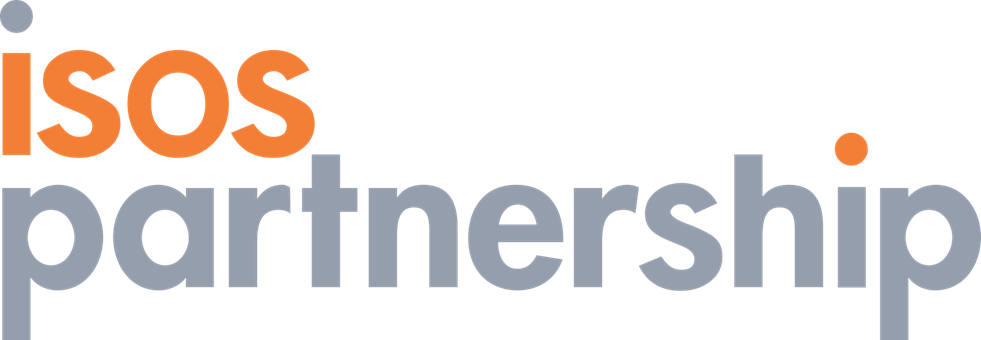Delivery, efficiency and innovation
Strengthening support for inclusion and the use of alternative provision in Wakefield
‘A huge thank you. Without your steer, we would not be where we are – and this is a very different place to where we were 18 months ago. A superb job.’
— Alan Warboys, Accord Multi-Academy Trust CEO and Chair of the Wakefield Inclusion and AP Strategic Group
The brief
In the spring of 2019, the local system in Wakefield was experiencing a range of pressures on inclusion –
rates of permanent exclusion were high and rising;
numbers of pupils placed in alternative provision (AP) were high and rising year-on-year; and
there was growing pressure on available resources to support inclusion and AP, with support perceived as increasingly “reactive”.
There was a strong desire on the part of the local authority (LA), school and AP leaders to review and rebuild the system of inclusion support and AP so that it provided dedicated, pro-active, preventative, timely, holistic and high-quality support for young people requiring additional help and those who might otherwise be at risk of exclusion.
Isos Partnership was commissioned to work with the newly-formed Wakefield Inclusion and AP Strategic Group, which was made up of school and LA leaders, to –
facilitate a co-productive process of reviewing current arrangements in Wakefield;
develop a set of shared proposals for strengthening inclusion and the use of AP; and
work with school, AP and LA leaders to embed this new approach in practice.
What did we do?
There were three main phases of this project.
Co-producing proposals (autumn term 2019) – we facilitated a rapid review to gather feedback and data to build up an overall picture of the strengths and challenges around inclusion and AP in Wakefield. We then established parallel Primary and Secondary Inclusion Sub-Groups (both reporting to the overall Strategic Group), made up of school leaders and leaders / decision-makers from key LA services with a role to play in supporting inclusion. Through a regular sequence of meetings, drawing on evidence about the system in Wakefield and our wider research and knowledge of inclusion and AP in other local systems, we co-produced a set of system-wide proposals for strengthening inclusion and the use of AP in Wakefield. These were presented at a successful and well-attended “All-Wakefield Inclusion Summit” in November 2019, where there was agreement from school, AP and LA leaders to move forward with these proposals. Key among the proposals was the idea of developing a continuum of inclusion support, focusing on inclusion support to keep young people included in mainstream schools, and a set of “Inclusion Panels” to provide collective responsibility, oversight and decision-making about access to inclusion support and AP.
Developing implementation plans (spring term 2020)– we continued to work with the Primary and Secondary Inclusion Sub-Groups and AP colleagues to work up detailed plans for transforming proposals into practical and effective action. We presented our implementation plans to primary and secondary school leaders, and senior LA officers, who agreed collectively to move forward with creating the new system of inclusion support and AP.
Implementing and embedding the new system (summer and autumn terms 2020) – the scale of the coronavirus pandemic began to become clear at the crucial point in this project where leaders had agreed to move towards implementing a new system of inclusion support and AP. After due consideration with the Strategic Group, it was agreed that it was important to continue with the inclusion and AP project, both due the fact that the issues that had prompted the work in the first place had not gone away, and in recognition of the fact that having a strong system of inclusion support and effective use of AP would be an important part of dealing with the potential implications of coronavirus restrictions and disruption to education for some young people. As such, we adapted how we delivered the project to changed circumstances, and we were able to design, test and start to put into practice elements of the new system. This culminated in the recruitment of a new “Strategic Lead” for inclusion and AP, and a series of “shadow” meetings of the new Primary and Secondary Inclusion Panels at the end of the summer term. The creation of the "Strategic Lead role created dedicated leadership capacity to oversee the implementation and early operation of the new system, and has been seen to have had a transformative effect on the system by school, AP and LA leaders. The “shadow” Inclusion Panel meetings, held remotely, provided school, AP and LA leaders with the opportunity to test out new systems and processes and familiarise themselves with a new way of organising inclusion support and access to AP, ready for the start of the 2020/21 academic year. This meant that the new system of inclusion support and AP could be launched formally in September 2020. During the autumn term 2020, we continued to work with the Strategic Lead, their team, the Strategic Group, and school and AP leaders in Wakefield to share skills and knowledge, act on early feedback and make refinements where necessary, and ensure there was a long-term plan in place for taking this work forward.
What difference did we make?
In our wider research on inclusion and AP, we have argued strongly about the importance of local inclusion and AP systems being built on a strong sense of “collective responsibility” for all young people, including those who may require support from AP, on the part of schools, AP providers and LA services. Our work in Wakefield demonstrates that inclusion and AP systems can be re-designed and new approaches developed, founded on a principle of collective responsibility, even in a time crisis where what had been normal ways of working have changed beyond recognition.
Key to the progress of the project has been having a dedicated coalition of school, AP and LA leaders, working to a defined sequence and end-point, being prepared to confront the tricky issues and uncomfortable truths about the local system, and being willing to champion a collegiate approach and make swift decisions and concrete changes.
At the close of the project in January 2021, we had –
co-produced a set of robust proposals, through our work with school, AP and LA leaders, informed by best practice in other local areas, shared and tested with Wakefield school, AP and LA leaders to build genuine consensus and buy-in;
developed a detailed roadmap for implementation of these proposals, informed by effective approaches from across the country;
helped to design and create new leadership capacity to take this work forward, working with the new team to advise, support and share skills and knowledge;
supported school, AP and LA leaders to continue this project, despite the disruption caused by the pandemic; and
worked with school, AP and LA leaders to implement successfully a major transformation programme and new arrangements for supporting some of the most vulnerable young people in Wakefield, providing a different, more collegiate, holistic and preventative way of accessing support and avoiding permanent exclusion – since September, the Inclusion Panels (a Wakefield-wide Primary Panel, and three locality Secondary Panels) have held four rounds of meetings, with each one putting in place a positive package of support for the young people whose needs are considered, and leading to a significant reduction in primary and secondary permanent exclusions relative to the previous academic year (as was highlighted in a recent Ofsted monitoring visit - see below).
What did those involved say about the work?
‘A huge thank you. Without your steer, we would not be where we are – and this is a very different place to where we were 18 months ago. A superb job.’
— Alan Warboys, Accord Multi-Academy Trust CEO, and Chair of the Wakefield Inclusion and AP Strategic Group
‘You have been brilliant at holding the mirror up to the work we are doing, and you have not shied away from tough conversations. This has given us a really good launchpad for taking this work forward. We look forward to you coming back and seeing how we are progressing.’
— Andy Lancashire, Service Director, Education and Inclusion
‘Meanwhile, newly-established inclusion panels, linked to the Wakefield Families Together locality-based cluster model, with its emphasis on early intervention, have helped to achieve a significant reduction in the number of permanent exclusions. With alternative provision no longer viewed as a destination, pupil referral units are now offering shorter-term turnaround provision in a way that is helping to keep children in school and supporting schools to meet their need.’
— Excerpt from the report following Ofsted’s local authority children’s services focused visit, November 2020
‘A log is maintained on all children who are not in full-time education and, through a monthly inclusion panel, there is joined-up thinking with other agencies and services so that they can identify any issues and offer support.’
— Excerpt from Ofsted’s inspection of Wakefield local authority children’s services, November 2021
‘We really welcome the support you have created over the last year. We really appreciate it. [The Strategic Lead and team] are doing a great job.’
— Primary school headteacher (about the new Wakefield Primary Inclusion Panel)


